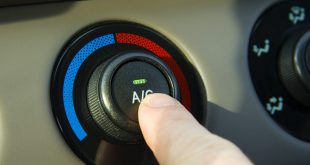
Cancers affecting the bowel, blood, prostate, breast, skin and pancreas kill 18,500 people a year, but you can massively reduce your risk
1. Get screened regularly
Early detection is the best chance of a cure in most cancer cases and can even prevent you from getting cancer in the first place, says Cancer Council CEO Professor Ian Olver. He recommends free screening programs for breast, bowel and cervical cancers in your age group.
The dramatic drop in cervical cancer in the past 20 years is a great example of a screening’s effect. Cervical cancer incidence and deaths have halved since the National Cervical Cancer Screening Program, which detects abnormal (and possibly pre-cancerous) cells, was introduced in 1991.
An early detection of cancer can be just as life-saving as detecting pre-cancerous cells. Ninety per cent of bowel cancers can be treated if detected early, from either a faecal occult blood test (which looks for blood in a stool sample) or a colonoscopy. Similarly, Australian women now have an 88 per cent chance of surviving breast cancer for five years after diagnosis, thanks to regular mammograms.
The free cancer-screening programs in Australia are:
- Women over 50 can get free mammograms every two years through BreastScreen (132 050) and women over 40 are also allowed free mammograms.
- Men and women turning 50, 55 or 65 between now and the end of 2014 will be sent a free bowel-screen kit in the mail (these are also on sale at your local chemist).
- Many GPs also offer free Pap tests every two years.
Recommended Cancer-Screening Tests
Male
18 and over
- Regular skin self-examinations.
40 and over
- Speak to your GP about prostate-testing options if you have a family history.
- Regular skin self-examinations.
50 and over
- Bowel screening every two years. A free screening kit will be sent to you if you are turning 50, 55 or 65 between now and the end of 2014. If you are turning 60 in 2013 or 2014, you will also receive this kit.
- Speak to your GP about prostate-testing options.
- Regular skin self-examinations.
Female
18 and over
- Pap smear every two years once sexually active.
- Regular breast and skin self-examinations.
40 and over
- Regular breast and skin self-examinations.
50 and over
- Bowel screening every two years. A free screening kit will be sent to you if you are turning 50, 55 or 65 between now and the end of 2014. If you are turning 60 in 2013 or 2014, you will also receive this kit.
- Mammogram and Pap smear every two years until the age of 69 and 70 respectively.
- Regular breast and skin self-examinations.
Other programs on offer include skin checks (by your GP or a specialist clinic), the cervical cancer vaccine (which is available to women aged up to 45 as a private script) and prostate-specific antigen (PSA) testing for prostate cancer. There has been much scrutiny of the efficacy of PSA testing, but the Prostate Cancer Foundation of Australia says it is important for men to get tested as there are often no symptoms for the early stages of prostate cancer.
Self-examination is also essential. The earlier you report a change in your body, the better off you will be, Olver says. It is imperative you check your body regularly and report anything unusual to your GP.
2. Know the symptoms and your family history of cancer
Cancer symptoms are often ignored as the person assumes they are “too young” to have cancer or that the symptoms relate to a non-fatal condition. If you have any of these symptoms, have them checked out by a doctor.
- Possible bowel cancer symptoms: Any persistent change in bowel habits, blood in the stool, bloating and cramping, unexplained weight loss, severe abdominal pain.
- Possible prostate cancer symptoms: Discomfort urinating; sudden or urgent need to urinate; difficulty in starting to urinate; slow flow of urine and difficulty in stopping; painful ejaculation; blood in urine or semen.
- Possible breast cancer symptoms: A hard or growing lump in breast tissue; inverted or pitted skin; clear or bloodstained secretion from the nipple.
- Possible blood and lymph cancer symptoms: Leukaemia symptoms include night sweats, fatigue and unexplained bleeding or bruising on any part of the body. Lymphoma may present itself with a lump on the neck.
- Possible pancreatic cancer symptoms: Unexplained weight loss, upper abdominal or back pain.
- Possible skin cancer symptoms: Any change in shape, colour or size of a spot, or the development of a spot.
Your family history is also essential knowledge in the fight against cancer, as in many cases it significantly raises your risk factor. For example, your risk of bowel cancer doubles if you have one first-degree relative (parent, sibling, child) diagnosed with bowel cancer aged 55 or older. If the diagnosis was younger than age 55, your risk is three to six times higher. Men with a first-degree male relative (father, brother or son) who has been diagnosed with prostate cancer before age 60 are three times more at risk.
With breast and blood cancers, the increase in risk brought on by family history is only significant when there are three or more first- or second-degree relatives on the same side of the family with the cancer.
All states and territories in Australia have family cancer clinics offering specialist genetic services to individuals and families concerned about cancers in their families.
3. Have a healthy lifestyle
Quit smoking
Each cigarette contains more than 4000 chemicals, including over 60 carcinogens. Smoking is responsible for more cancer deaths than any other single factor, says the Cancer Council, so it should be everyone’s number-one lifestyle change.
“The best thing to do when quitting is to throw away the packet you have now and don’t buy another,” Olver says. “Be persistent and don’t punish yourself over a relapse.
The more times you try to give up smoking, the more chance you have at being successful.”
Eat well to keep your weight healthy
Fat was once just thought of as energy storage, but we now know it acts like a gland and can secrete cancer-causing substances, says Anthony Steele from the Leukaemia Foundation.
A healthy waist circumference for Caucasian men is less than 94 centimetres; for Caucasian women it is less than 80 centimetres.
“Eating well is good prevention for all cancers but it is not just about nutrients. It is about stopping the amount of fat you are storing in your systems,” Steele says.
Dr Anthony Lowe, from the Prostate Cancer Foundation of Australia, says cutting down on alcohol, red meat and saturated fats and eating five portions of fruit and vegetables every day will help prevent prostate and other cancers by keeping your weight healthy and giving your body a greater amount of nutrients.
Exercise regularly
Researchers at the Harvard School of Public Health and the University of California-San Francisco have found that among men who have been diagnosed with prostate cancer, those who walked for more than 90 minutes each week at a normal to brisk pace cut their risk of dying from any cause by 46 per cent compared with men who walked less than 90 minutes per week. Lowe recommends exercising for 30 to 60 minutes every day to help prevent prostate and other cancers.
Be sun smart
Our nation has the highest rates of skin cancer in the world. The Cancer Council recommends protective clothing, including a hat when outdoors, applying sunscreen every day, staying in the shade where possible and wearing sunglasses that meet Australian standards.
Cancer facts
Childhood exposure to germs can help prevent cancer, with scientists suggesting a link between over-cleanliness and leukaemia.
“One of the benefits of child care is that if an illness goes through the centre it can actually be good for kids’ future health,” Steele says. “Vaccines work in the same way. They stimulate the immune system to find different ways to defeat pathogens.”
Babies need bottles sterilised for the first year of their life, but after this time it is important for them to play in the dirt and “just do what kids do”, Steele says.
“I won’t die of bowel cancer like my mother did”
Emma Daines, 47, lost her mother to bowel cancer 20 years ago and now has regular colonoscopies.
“Mum’s diagnosis was distressing. She didn’t have any symptoms other than some back pain, and that wasn’t acted on. Then one night she woke up with severe abdominal pain and was admitted to hospital. Four hours later we were told she had bowel cancer.
“Mum passed away 12 months later. A year later, her brother died of the same cancer. The whole experience left me and my four sisters with an acute sense of our susceptibility to bowel cancer. We now all get colonoscopies every three years. We all had a healthy diet and exercised before Mum passed away, so we’ve just maintained that.
“I have two daughters and two stepsons, and I’m very open with them about my mum, bowel cancer and the tests I have done. My mum didn’t get to meet her grandkids, but I’d like to meet mine.”
“I was diagnosed with prostate cancer the day my twins were born”
Hayes Van Der Meer, 49, was diagnosed with prostate cancer on the same day his wife gave birth to twins. They are now seven. Hayes also has a 10-year-old daughter.
“Although I was only 42, I asked my doctor if there were any cancers I could be checked for. I had a PSA test, which came back high. Another blood test confirmed it, so she sent me to the urologist.
“On the day my wife Melanie went into labour with our twin boys, eight weeks prematurely, I got the results back saying that I had cancer. That was tough for both of us. I looked at my family and thought, ‘I’m going to beat this. I want to see them all grow up.’
“I had a radical surgery to remove the prostate. I was only 42 years old and it was detected early so there were no side effects and there has been no cancer since.
“I was extremely lucky, but luck doesn’t belong to me alone. Any man can have the test.”
Source: bodyandSoul
 We are sharing information for knowledge. Presented by. SocialDiary.Net
We are sharing information for knowledge. Presented by. SocialDiary.Net



